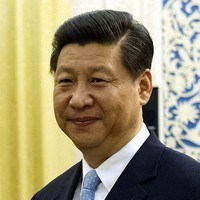Following a period of subdued and difficult relations between the European Union and China, Chinese President Xi Jinping’s first trip to Europe this week—which will include a stopover at the EU’s headquarters in Brussels, the first-ever such visit by a Chinese president—indicates that advances in ties made last year will continue into 2014. At the end of 2013, the two sides convened the High-Level Economic and Trade Dialogue for the first time since 2010, and the EU-China summit yielded a 2020 Strategic Agenda for Cooperation, a new EU-China Innovation Cooperation Dialogue and an agreement to launch negotiations on a bilateral investment treaty (BIT). At the same time, officials settled important trade disputes, paving the way for a more cooperative, rather than confrontational, relationship between Brussels and Beijing. Further opportunities will accompany Xi’s trip.
That said, even as these developments signal efforts to foster a more significant and functioning relationship between the EU and China, this year is unlikely to see a radical turning point, for two reasons. First, relations at the EU level have suffered because member states have been prioritizing their own economic and commercial considerations, especially since the financial crisis, and this undermines a common European approach. Although the crisis is fading, the economic priorities of individual states will continue to trump strategic objectives, at least for the remainder of this year. Second, the EU will soon undergo a leadership change: The complexion of both the European Commission and the European Parliament will change in 2014. Not only will this put policymaking on hold for much of the year, but high-level relationships will also need to be established. This situation will delay the completion of any significant deals and spur uncertainty about, for instance, the priorities of the next trade commissioner.
In 2008 and 2009, in the aftermath of the global financial crisis, China downgraded its political expectations for Europe. This reassessment was tied to recriminations on human rights, the continuation of the European arms embargo on China and the standoff over the EU’s refusal to grant market economy status to China—a designation that would make it more difficult for the EU to challenge Chinese trade practices in the World Trade Organization. Beijing is growing increasingly skeptical about Brussels’ ability to drive change on any of these issues, and as a result has focused on the individual member states, playing them off against one another and limiting Brussels’ ability to present a united front. The sovereign debt crisis exacerbated the differences among member states and reinforced their propensity to favor their bilateral relationships over EU-level relations.

